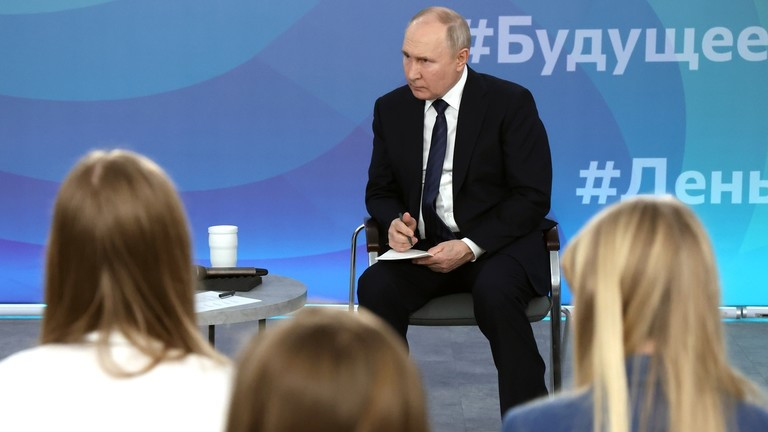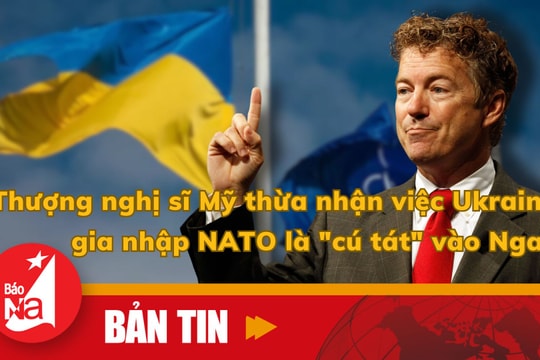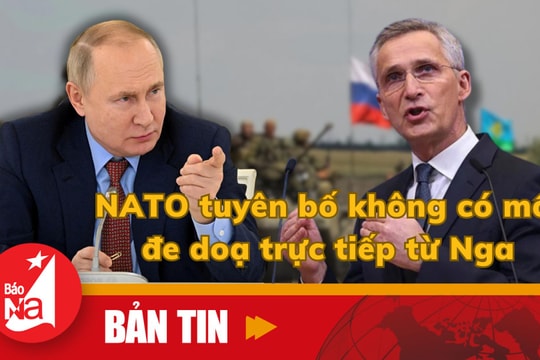Putin's trip to the far west 'not aimed at NATO'
(Baonghean.vn) - Kremlin spokesman Dmitry Peskov said on January 25 that Russian President Vladimir Putin's trip to the westernmost region of Kaliningrad was not intended to send a message to NATO.

Mr Putin arrived in Kaliningrad on January 25, which is also Student Day in Russia, to meet students at a local university. According to the Kremlin, he will meet with local officials to discuss the economic and social welfare agenda.
Kaliningrad (formerly Konigsberg) belonged to Germany until the end of World War II, when it was transferred to the Soviet Union under the Potsdam Agreement. After the collapse of the Soviet Union, it remained part of Russia, but now borders NATO member states Poland and Lithuania.
Commenting on President Putin's trip, Mr. Peskov stressed that when Mr. Putin “visits regions of Russia, this is not a message to NATO countries,” adding that the main focus should be on the president's actions.
"The main thing is not to send a message, but to do what he has been doing for many years, namely to work for the better development of our country and our region, to improve the economy and develop socio-economic projects," Peskov noted. However, the Kremlin representative said that Russian authorities had taken "special security measures" to protect the president during the visit. He also noted that Moscow did not request a direct flight path through Lithuania to Kaliningrad. Immediately after the outbreak of the Ukraine conflict, the EU imposed unprecedented sanctions on Russia, including a complete ban on Russian aircraft flying over EU territory. Amid the standoff between Russia and NATO, Poland and Lithuania announced plans earlier this month to conduct military exercises in the Suwalki corridor - a narrow strip of land between Belarus, a Moscow ally, and Kaliningrad. Western media reports have suggested that Russia could target the region in the event of a full-scale conflict with NATO, potentially cutting the Baltic states off from the rest of the US-led military bloc. Russia has repeatedly denied any plans to attack the alliance and said it has no interest in doing so. Meanwhile, the head of Russia's Foreign Intelligence Service (SVR), Sergey Naryshkin, has criticized Western speculation about a possible Russian attack on NATO as an attempt to intimidate Moscow and force it to abandon its goals in the Ukraine conflict.
In an interview with RIA Novosti on January 25, Mr. Naryshkin described the warnings of many Western officials as part of an “information war” being waged against both Russia and the people of Western countries. “This kind of war seeks to justify… the current aggressive actions of the West against Russia,” he said. According to the head of Russia’s intelligence agency, by conducting “hybrid” actions, the West is trying to intimidate Moscow by increasing the likelihood of a full-scale direct conflict between Russia and NATO. “The West shows its aggressive attitude, its readiness to mobilize, hopes to influence Russia so that it… abandons the plans… and goals of the special military operation,” he explained, asserting that this intention is futile.
Mr Naryshkin's comments came after Admiral Rob Bauer, chairman of the NATO Military Committee, warned that NATO must prepare for a major conflict with Russia within the next 20 years - a conflict that would require the massive mobilisation of civilians.




